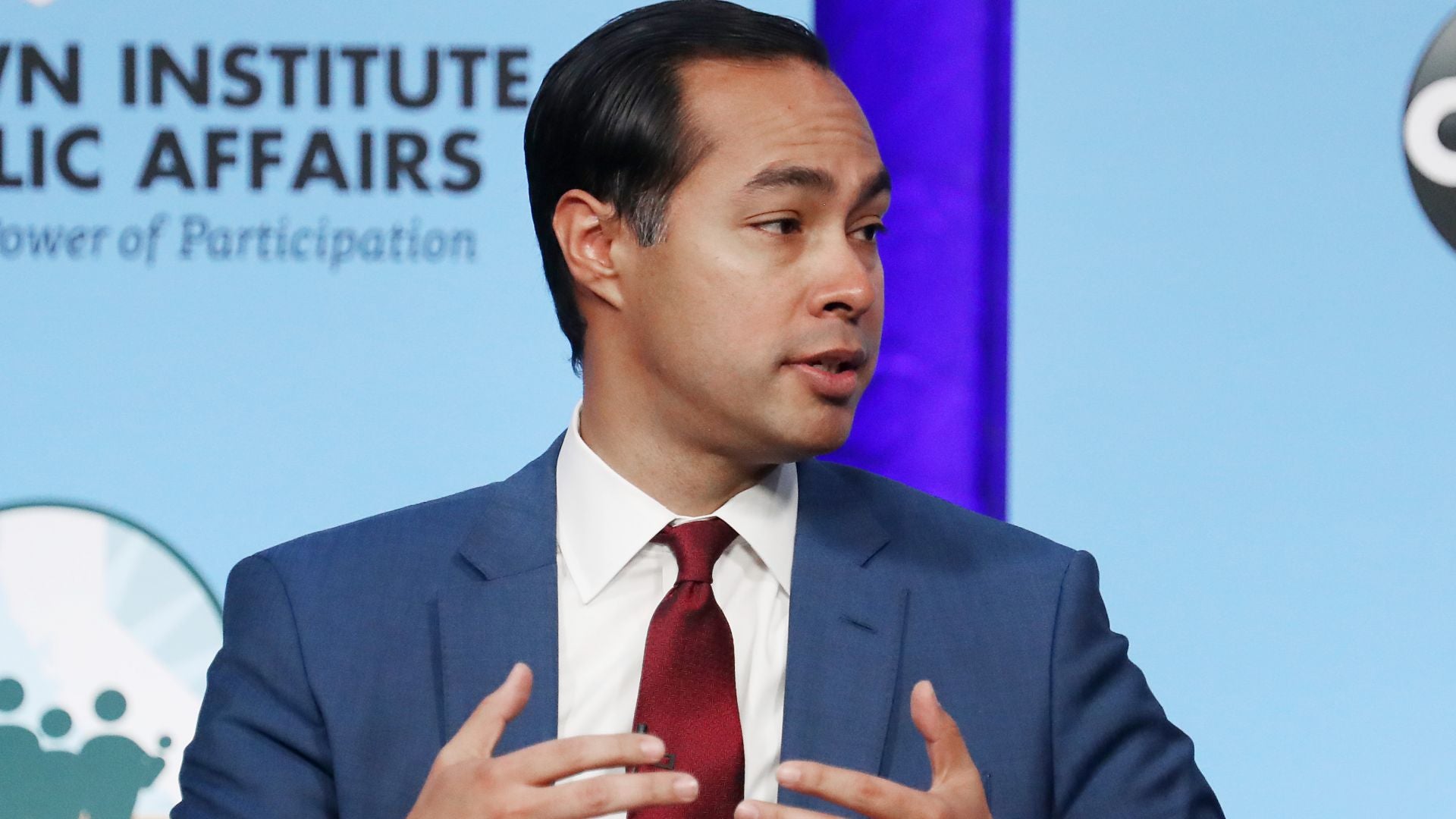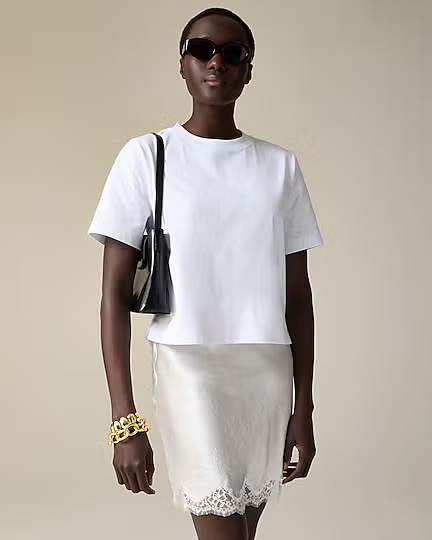
At the beginning of the 2020 Democratic presidential primary, the boasts of its field being the most diverse in history could be heard on high from party leadership and the ever predictable punditocracy. The primary was still overflowing with its usual crop of candidates – old white men, moderate white men, and white men who happen to be both old and moderate – to be sure, but there was a noticeable influx of women running for president, including Kamala Harris, who initially was seen as the most viable Black female presidential candidate in history, in addition to Cory Booker, a Black man, Pete Buttigieg, a gay man, and Julián Castro, the Obama alum who wanted to make his history as our nation’s first Latinx president.
The field has since dramatically winnowed, as they so often due, but no one will deny the field has gotten remarkably whiter with time. Kamala Harris stunningly exited the race in December, citing financial restraints. Around that same time, billionaire Michael Bloomberg entered the race and has since blanked the airwaves with his commercials. Cory Booker is holding on, but he has been unable to make his way back to the debate stage — leaving Andrew Yang as the only non-white candidate among the field. Such is an unfortunate position Castro found himself in some months ago, and as a result, has recently suspended his campaign.
In a video released to Twitter, Castro said that his campaign had “stood up for the most vulnerable people” and had “given a voice to those who are often forgotten.”
Castro’s words ring true to anyone that followed his storied campaign.
As Bustle mentioned in their profile of him (released on the same day of the suspension of his campaign), aptly titled “Julián Castro’s Campaign Showed What Real Inclusivity Looks Like,” Castro was: the first candidate to release a comprehensive immigration plan; the first candidate to visit Flint; released the first comprehensive platform to support Indigenous communities; among the first candidates to add his personal pronouns to his Twitter bio; during a June Planned Parenthood forum on reproductive rights, Castro was the first and only candidate to ask for an activist’s pronouns in a Q&A; Castro was also the first person to invoke the trans community’s access to abortion.
Moreover, his campaign rightly highlighted that he was the first Democratic presidential candidate with policies on police reform and ending hunger. Castro also used the platform that comes with running for president to feature the most vulnerable. It’s evident in his trips to Skid Row in Los Angeles as well as his escorting asylum seekers – among them eight gay and lesbians from Cuba along with a deaf Salvadoran woman – stymied by the Trump administration’s “Remain in Mexico” policy across the border bridge to his native Texas from Mexico.
And while his most infamous moment in the debates may be his confrontation with Joe Biden, Castro more so often brought much-needed nuance to back and forth on policy. Say, Castro noting to Beto O’Rourke that his gun buyback proposal may sound colorblind, but realistically, such policies could bring imminent danger to Black and Brown communities.
Even when Castro wasn’t on the debate stage, he used social media and press appearances to bring more diverse thought to debates that thus far have often been soured by regrettable questioning of candidates — not to mention an obsession with only the upper white tier contenders.
As MSNBC’s Joy Ann Reid mentioned last December, “Julián Castro will make a point no one else will make.”
Castro says he will keep fighting, and given his endorsement of Elizabeth Warren, he will undoubtedly do so as a surrogate campaign, and if Warren wins the nomination and makes the right move, as a running mate.
But even if that good fortune were to come to Castro, I’m still angry over the disservice done to the campaign.
As New York’s Zak Cheney-Rice writes in his excellent “Julián Castro’s Campaign Was Not for the Fearful,” the reality is that “fear has dictated the mood and direction of the 2020 Democratic presidential primary,” thus the political climate “has not been an election amenable to the candidacy of Julián Castro.” It’s a factor that has impacted the candidacies of Harris and Booker, but perhaps, even more so Castro’s campaign.
After all, while the current racist president first gained political legitimacy by questioning the citizenship of America’s first Black president, his presidential bid was launched with a direct attack on immigrants from Mexico and other Central American nations. The fact that the immigration crisis of the Trump administration’s own making – children caged in detention centers that serve as de facto immigration camps – isn’t still widely covered in our national media speaks volumes to the lip service paid to many communities, but most assuredly, the one Castro comes from.
The end result has been much of this campaign spent fixated on “electability.” I’ve heard some pundits dismiss Castro’s campaign solely based on its polling, but as many Black and Brown pundits have tried to highlight, polling doesn’t often reflect everyone’s views. No one has ever polled my Black ass, but I digress.
Not to mention, that polling reflects more about media shaping the minds of the electorate than anything. Because if people are told for years that Trump is some unstoppable force of nature due to these mythical white working class Midwestern voters, many will understandably fall in line with the sentiment that Democrats need as risk averse a nominee as possible.
That sets the table for someone like Joe Biden, old, white, familiar, and for the most part, someone intended to make as little fuss as possible versus Julián Castro, a Latinx candidate campaigning on progressive policies to defend the poor, the disabled, and other marginalized people. It’s the kind of people Democrats so often say they represent, but so often fail to fight for.
And it’s why the likes of Pete Buttigieg can somehow be seen as a viable candidate in a way Castro can’t. Never mind the Castro having more experienced and being just as educated as Buttigieg, but consider this: at the present moment, is continuing to struggle with Black and Latinx voters nationwide. No Democrat can win the primary much less nationally without heavy support from Black and Latinx voters, but somehow Mayor Pete gets to be paraded around as a contender.
Sure, that’s because Buttigieg has raised a considerable amount of money, but much of that has to do with the reality that a media complex largely populated by out of touch white people propelled him into the spotlight.
Last fall, Castro addressed the fears of the electorate.
“For Democrats that are out there, what I hear is a lot of anxiety about, hey, ‘We need to beat Donald Trump,’ and ‘How are we going to beat Donald Trump?’” the former San Antonio mayor told NBC’s Chuck Todd on Meet the Press. “Well, if you take a look at the modern era of presidential campaigns, when Democrats have won, it’s because they’ve taken a bit of a risk — whether it was Kennedy in 1960 or Carter in 1976 or Barack Obama in 2008. We need to get people off the sidelines in 2020.”
Castro went on to say he could “reassemble the Obama coalition and then supercharge that” and while that argument was never taken seriously, it should have been. I think Castro with his progressive policies and emphasis on issues directly speaking to the concerns of voters Democrats need to vote en masse, had a much stronger chance of achieving such a feat than the smaller town mayor from Indiana simply thinking “unity rhetoric” can propel his dreams of being Vanilla Latte Obama. Perhaps folks in Iowa believe that, but should he win, don’t assume we’ll all fall in line.
Me having to write any of this only further frustrates me because the last thing I needed was another reminder of the fact that no matter how impressive you work to be and in spite of how hard you go out of your way to do everything asked of you, some white boy can bypass you by virtue of merely showing up and smiling.
I would have taken Castro’s campaign ending better if he had received even a fraction of a fair shot. Instead, he suffered under the media-crafted assumption that only an old white man that can make Midwestern white people giddy can. However, in terms of where the Democratic base is and is going, Castro offered a really fine template of what could be if we got over our fears. Castro stayed on message until the very end of his campaign, so I have no doubt that he will continue fighting as professed.






Still, I already miss the campaign he and Maya Rupert, who was only the third Black woman to run a presidential campaign, built. Castro was correct in that the 2020 cycle wasn’t his time. Even so, it’s about time more people catch up.







